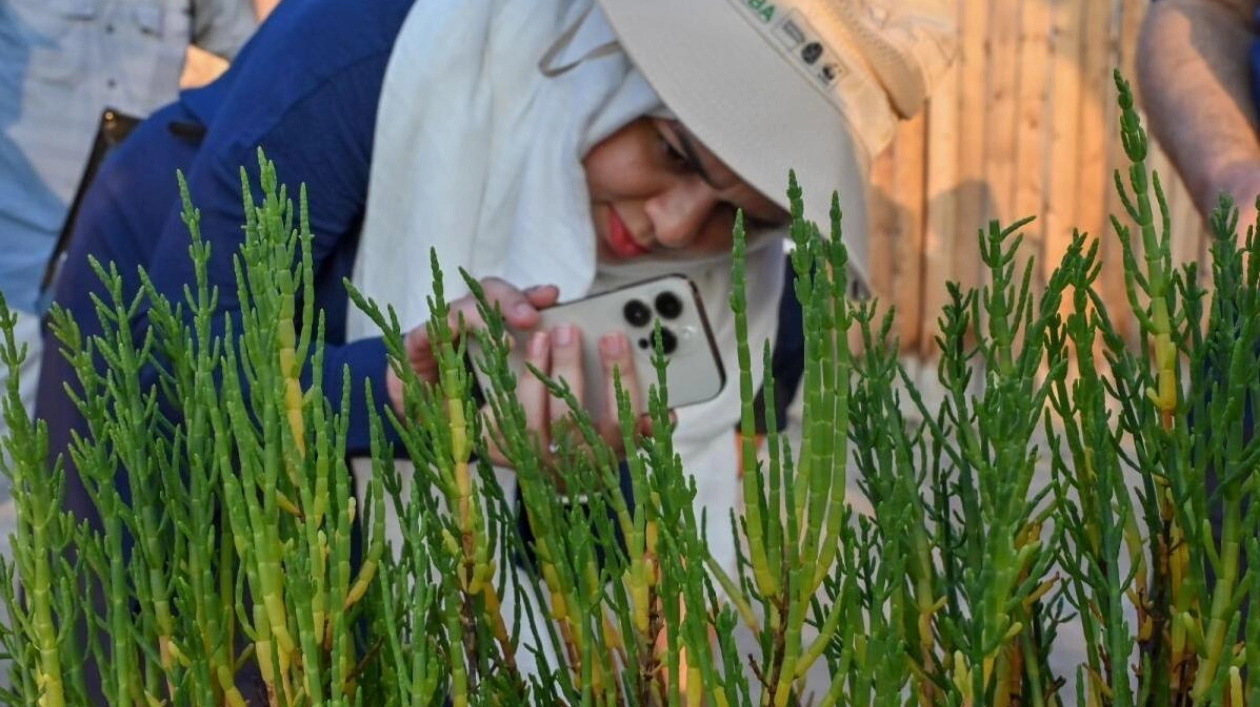A native plant of the UAE, known as halophytes, which can thrive in salty conditions, is gaining popularity in local kitchens as chefs start to incorporate them into their menus. In an effort to further integrate these resilient plants into everyday cooking and raise awareness about their potential benefits, a festival was held on Sunday at Umm Al Quwain. The event featured a variety of dishes made with Salicornia and Arthocaulon (halophyte species) as key ingredients, available for sampling.
The Halophytes Harvest Festival aimed to highlight the significance of these salt-tolerant species in promoting sustainability and food security across the UAE. The festival also sought to encourage the cultivation of local halophytes. The initiative underscores the importance of collaboration with local communities, schools, and government entities. "A whole system works beautifully together," said Antonopoulou, emphasizing the synergy between eco-tourism, fishing, and agriculture.
By incorporating these plants into local agriculture, new income streams can be created for farming communities, fostering economic diversification and entrepreneurship. In addition to their culinary potential, halophytes are recognized for their health benefits. Research shows that species like salicornia, common along the coastal areas of Umm Al Quwain, are rich in essential minerals, Vitamin B12, and antioxidants. "These plants can be transformed into superfoods and other valuable products," said Marina Antonopoulou, a senior expert in marine ecology at Emirates Nature-WWF.
Unlike conventional salt, which significantly contributes to sodium intake, these plants offer a unique composition that may be beneficial for the body. As Marina explains, "Halophytes contain components that can help regulate sodium absorption, making them a healthier alternative. They not only enhance flavor but also provide essential nutrients without the negative impacts of traditional salt." This not only enriches local diets but also opens up opportunities for local farm-to-table dining experiences.
Local chefs are being encouraged to incorporate halophytes into their menus, showcasing their unique nutritional benefits and versatility. Omar Shihab, founder of BOCA at DIFC in Dubai, said, "From day one, sustainability has been our primary focus. The integration of these native plants into local cuisine is an exciting opportunity for public awareness." He also noted that halophytes can be roasted, fried, or used in various preparations, enhancing their adaptability in diverse dishes. "We want to introduce these unique plants to our customers and show how they can be part of everyday cooking," he added.
Source link: https://www.khaleejtimes.com






